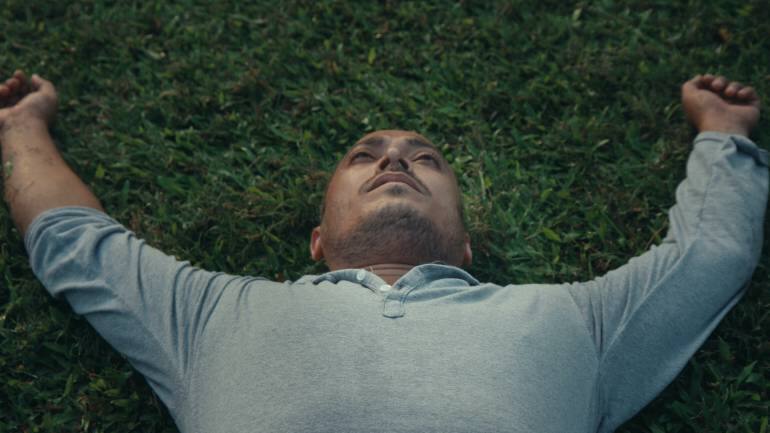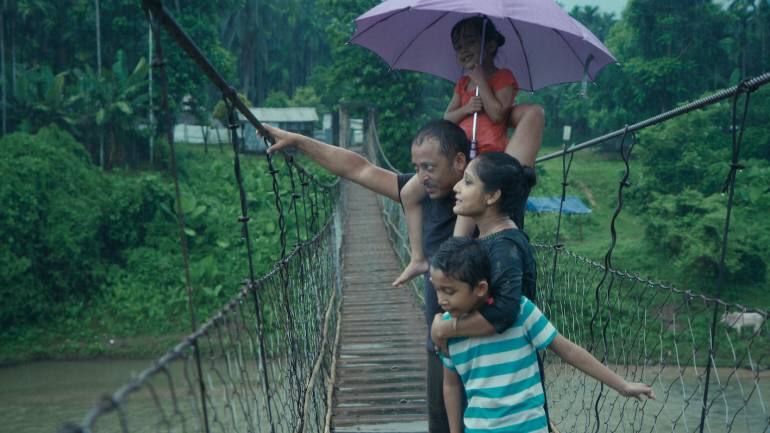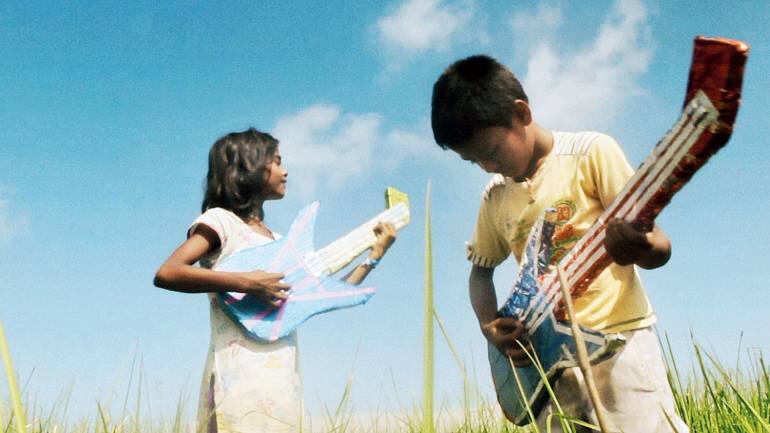



In the ocean of massy entertainers by male filmmakers, Assamese independent filmmaker Rima Das’s movies are green islands where one goes to rest. Very few Indian filmmakers have kept Satyajit Ray’s tradition of children’s cinema — subject treated with gravitas, without diluting the innocence — alive. Another recent film is Prasun Chatterjee’s Bengali film Dostojee (2022). Provincial Assam on screen needed the Das touch. With Tora’s Husband, the National Award-winning filmmaker enters the urbanscape and trains the lens on to the personal and universal, grief and creation, socially-ascribed roles and negotiations of the adult world. During the making of the film, she lost her father to COVID-19.
Das has just been nominated as the Best Director (Tora’s Husband) in Asia Pacific Screen Awards (APSA) 2023, the region’s highest accolade in film, with films from 78 countries and areas. APSA is endorsed by foundation partners Paris-based UNESCO and FIAPF-International Federation of Film Producers Associations. Winners will be awarded at the ceremony on the Gold Coast, Australia, on November 3. Das is nominated alongside Celine Song for Past Lives(the US), Darkhan Tulegenov for Brothers(Bratya, Kazakhstan), Liang Ming for Carefree Days(People’s Republic of China) and Ryusuke Hamaguchi for Evil Does Not Exist(Japan). She is also part of 2023 APSA Youth, Animation, Documentary International jury.
Das is the writer, director, cinematographer, editor and producer of Tora’s Husband, which could have been a tad more taut but is infused with emotional heft that comes with her cinema of interiority. The film, which had its world premiere at the Toronto International Film festival (TIFF, 2022), released across theatres in Assam on September 22 and in the metros and other cities on September 29. It is the two-time National Award-winning indie filmmaker’s third film to hit the theatres. Edited excerpts:
The idea for Village Rockstars (2017) came to you from a band of children and their make-believe instruments. WhatsApp forwards about moral policing incidents made you want to make the teenage love story Bulbul Can Sing (2018). Was the COVID-19 pandemic and its effects on income loss and relationship ruptures the reason for making Tora’s Husband?Tora’s Husband started out being about the relationship between a husband and wife during the pandemic. But life during the pandemic kept changing — suddenly intense, suddenly calm, accepting the new normal to living like nothing happened. Apart from Jaan and Tora, I also started exploring the people and the world around them. The film is a reflection on friendships, relationships, humanity, love and responsibilities. How I perceived the pandemic, life and death was changing and the characters and the story were transforming. Tora’s Husband is quite mysterious even for me.
I was dealing with the loss of my father around that time. Recently, I read in the Bhagavad Gita that grief is also yoga. Because of grief comes great development, we begin to think, we seek advice and philosophy to guide us.
There is a dialogue in the film that says, ‘We always say that there is one world but that’s not true. Each of us are a world of our own.’ Tora’s Husband is a confluence of so many worlds — that are both personal and together —they show a mirror to the society.
Was the scale and process of making this film more difficult or easier?The style of filmmaking is quite the same like you see in Village Rockstars and Bulbul Can Sing. But there are quite a few upgrades. We have a crew, even though it was just five-six members, we had sync sound, since we were shooting a lot indoors there is quite some art and production design involved.
I’d say Tora’s Husband is my most challenging film to date. The pandemic restricted us in ways we don’t even realise. Every time the cast and crew were back after a lockdown, they were restless. It was difficult to focus and maintain consistency. There was a dilemma of not shooting during the pandemic against telling a story of the times. There was already a lot that we saw in the news. How could I show a different aspect? Then there was personal loss.
I didn’t find a producer, so like my previous films I self-produced. This is my third film in theatres. Despite stiff competition from bigger films, regional films in each region, the distributors are trying to accommodate my film. I am glad Tora’s Husband is screening at 36 theatres across Assam and we are getting an overwhelming response. Although it’s a few shows, but I am glad it is now showing in cinemas in Metro cities, too.
 A still from 'Bulbul Can Sing' (2018).How long did the making take? The previous two films were made in quick succession, but this one took time.
A still from 'Bulbul Can Sing' (2018).How long did the making take? The previous two films were made in quick succession, but this one took time. I started shooting in July 2020 and continued shooting for about two years. For a layered film like Tora’s Husband, it’s difficult to decide where to stop. My mindset during the different phases of the pandemic, from uncertainty to normalcy and dealing with grief, also influenced the film.
My production house, Flying River Films, did two BRICS projects in 2019. Sunshine Dreamers, a cricket-based documentary, and For Each Other, a short film produced by acclaimed filmmaker Jia Zhangke. During the pandemic, I was shooting Tora’s Husband and Village Rockstars 2. Amid that, I also did a short film that could soon be on an OTT platform, another documentary and a short film for the anthology My Melbourne’s shooting in Australia with an all-Australian cast and crew. It’s a juggle between my independent projects and collaborations with other producers.
After films/stories on children and youth, Tora’s Husband is the story of adults. Was this a natural progression for you as a storyteller?My first film (Man with the Binoculars: Antardrishti, 2016) was with a 55-year-old in the lead before I explored children and youth stories. I follow my intuition, it was never a conscious decision. Whatever story appeals to me at that time, I like to explore it.
Are all the characters in the film drawn from your personal life?Surely my father and Jaan’s (cousin Abhijit Das’s) image is present in the film, but it’s a fiction film after all. I pick slices from life and parts from different personalities of different people and colour them with my imagination. I try to integrate the real personalities of people playing the characters but the soul is according to the story’s vision. It enables me to get the little nuances.
 Abhijit Das as Jaan in a still from 'Tora's Husband'.In the film, in some scenes Jaan holds his head, which is not explained. Perhaps, he has a health issue due to his excessive drinking, or a head-injury from playing football, or metaphorically his life’s troubles weighing down on him?
Abhijit Das as Jaan in a still from 'Tora's Husband'.In the film, in some scenes Jaan holds his head, which is not explained. Perhaps, he has a health issue due to his excessive drinking, or a head-injury from playing football, or metaphorically his life’s troubles weighing down on him?I developed a very bad headache. I can’t say whether it was the pandemic or the grief or immersing myself in shooting two films without taking time off to heal. I can’t explain why I was affected so badly. I thought of incorporating it in the film as a metaphor.
What are the joys and disappointments of working with non-actors?With professional actors and with non-actors, there is a different kind of magic. Professional actors know their craft. If our thought processes align, I can push them to bring out a new dimension. If there are times when I feel the acting doesn’t appear natural, I try to tone it down. I have noticed that non-actors are surprisingly quite free and comfortable while shooting because there is no pressure of expectations. But if it’s an intense emotional scene, they might not be able to deliver well and it becomes challenging for me at that time. Working with non-actors also gives me the freedom to create in line with my vision, at my pace.
You have ambient sound in your realist films, do you feel adding music will get distracting?Cinema is where all artforms come together. I feel music is everywhere. When I am editing there is a rhythm, in the rain there is a rhythm, in how birds fly, there is a rhythm. Music is not only to be heard but also felt. It’s sometimes seen, sometimes unseen. Whether I use or don’t use music in a film depends on the mood, treatment of that particular scene and the film as a whole. I also consider whether using music enhances or distracts from my vision. Recently in my documentaries and even in Tora’s Husband we used background music.
 Behind the scene shooting of 'Tora's Husband' in Assam.How do you see the challenge of making your kind of cinema in a milieu where big-budget, star-studded commercial cinema draws in the audiences and box office collections decide the fate of actors and directors?
Behind the scene shooting of 'Tora's Husband' in Assam.How do you see the challenge of making your kind of cinema in a milieu where big-budget, star-studded commercial cinema draws in the audiences and box office collections decide the fate of actors and directors?Cinema for me is love. Making indie films, is quite risky. But when there is love, you will hustle through the challenges. There are so many indie filmmakers in India and abroad who keep making inspiring films. As (veteran French filmmaker) Agnes Varda once said, I don’t want to make just another film, I want to keep cinema alive.
Sometimes, I also feel like doing something massy. To make the films you love, you need money. I try to collaborate with others for films that require a larger canvas, while continuing to make the kind of films I make.
I always get this question about mainstream and indie cinema. If I give my mother burger or pasta she won’t like it but kids these days, even in villages, love it. When I travel to different festivals, I notice they have a film appreciation course. I have seen five-six-year-olds come to the cinema. If we encourage children and youngsters in India as well, in a few years we will have audiences with evolved taste. The indie film community, while telling the stories they love, will also need to work on building the audience and an ecosystem. Then we might have a day where we don’t have to ask such questions.
 A still from 'Tora's Husband'.It also questions the art versus commerce discourse of filmmaking. Would you be open to making studio films in the future?
A still from 'Tora's Husband'.It also questions the art versus commerce discourse of filmmaking. Would you be open to making studio films in the future?Yes, of course, I would like to work with studios. When I am making a film, I don’t box it into art or commercial film. I just want to keep the cinema I know and love alive, and reach a wider audience. I look forward to experimenting with different canvases, different stories, different characters.
Why was it important for you to shift base to Mumbai, where you have been living for more than a decade?Living in Mumbai widened my horizons in terms of life experiences, visiting film festivals in Mumbai and Goa, interacting with the people from film community. It enabled me see life back home in Assam in a different light which I try to translate on screen.
Who have been the filmmakers, at home and in the world, whose films you’ve grown up watching and whose works have inspired you?Growing up in Assam I watched film of Jahnu Barua, Padum Barua, Bhabendra Nath Saikia. But, back then, I didn’t have an understanding, so it wasn’t conscious viewing. Whatever was playing on TV, there would be Assamese films, Hindi films, the shows on DD (Doordarshan) I would watch. I like films of Shyam Benegal, Raj Kapoor, Guru Dutt, and Mughal-e-Azam (1960). When I decided to make films, I was inspired by Iranian cinema, the work of master and contemporary filmmakers like Satyajit Ray, Wong Kar-wai, Majid Majidi, (Federico) Fellini, (Jean-Luc) Godard, Terence Malik, (Abbas) Kiarostami, among others.
 A still from 'Village Rockstars' (2017).You won the National Award for Village Rockstars, it was sent as India’s official entry for the Oscars. When it didn’t make the final cut, how disheartened were you?
A still from 'Village Rockstars' (2017).You won the National Award for Village Rockstars, it was sent as India’s official entry for the Oscars. When it didn’t make the final cut, how disheartened were you?It was an overwhelming journey. I saw a lot of positive responsibilities and new possibilities. But due to lack of proper promotional and marketing strategy, I feel Village Rockstars lacked behind. I was disheartened when we didn’t make it too far, but it was momentary and I took it as a lesson.
What next?Village Rockstars 2, my film which is part of the My Melbourne anthology are currently under way and a few ideas are under-production.
Discover the latest Business News, Sensex, and Nifty updates. Obtain Personal Finance insights, tax queries, and expert opinions on Moneycontrol or download the Moneycontrol App to stay updated!
Find the best of Al News in one place, specially curated for you every weekend.
Stay on top of the latest tech trends and biggest startup news.